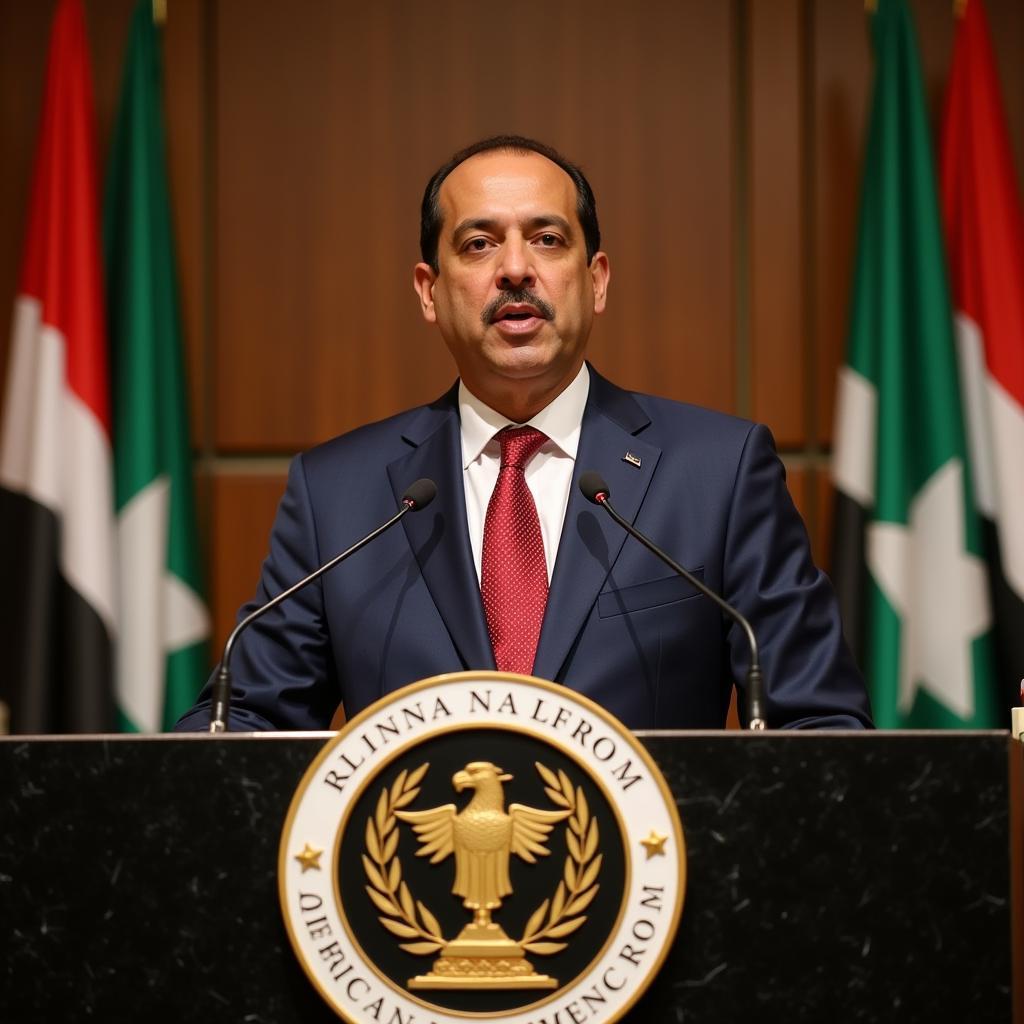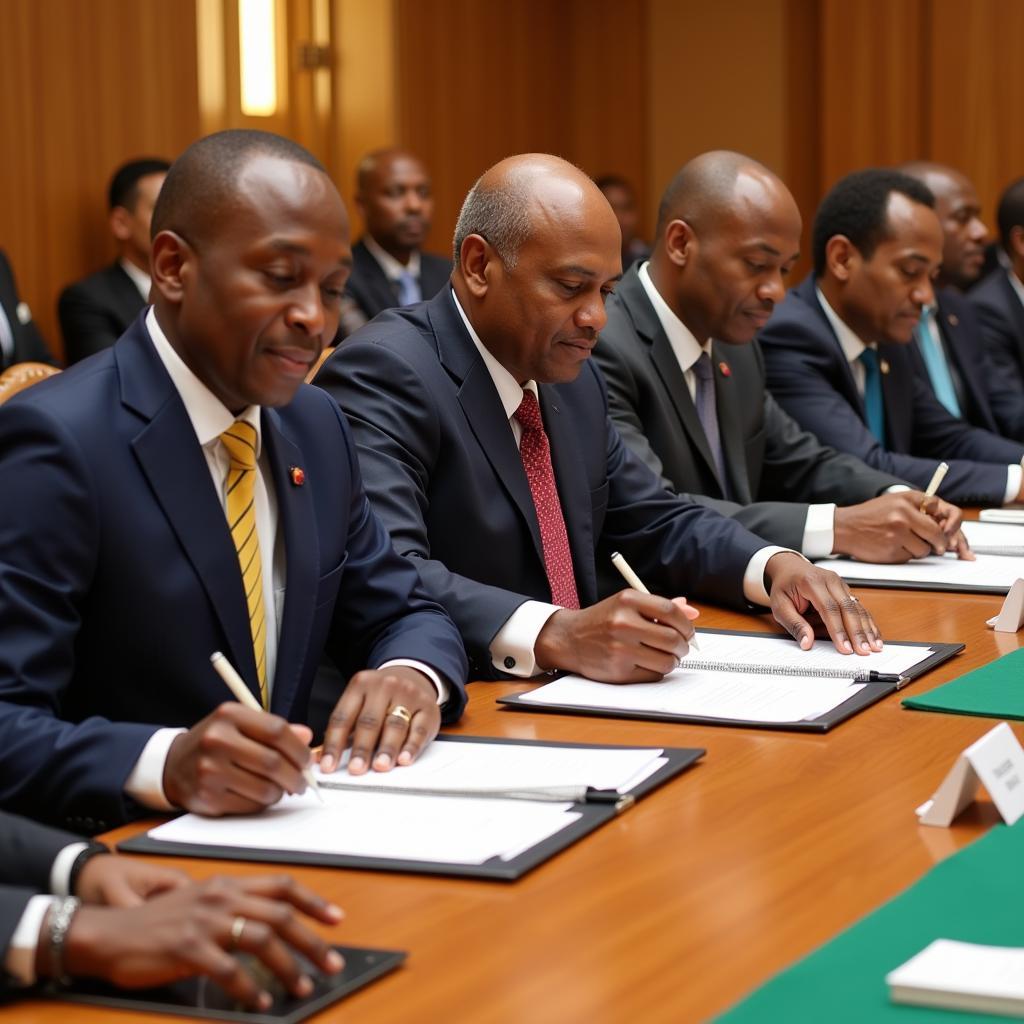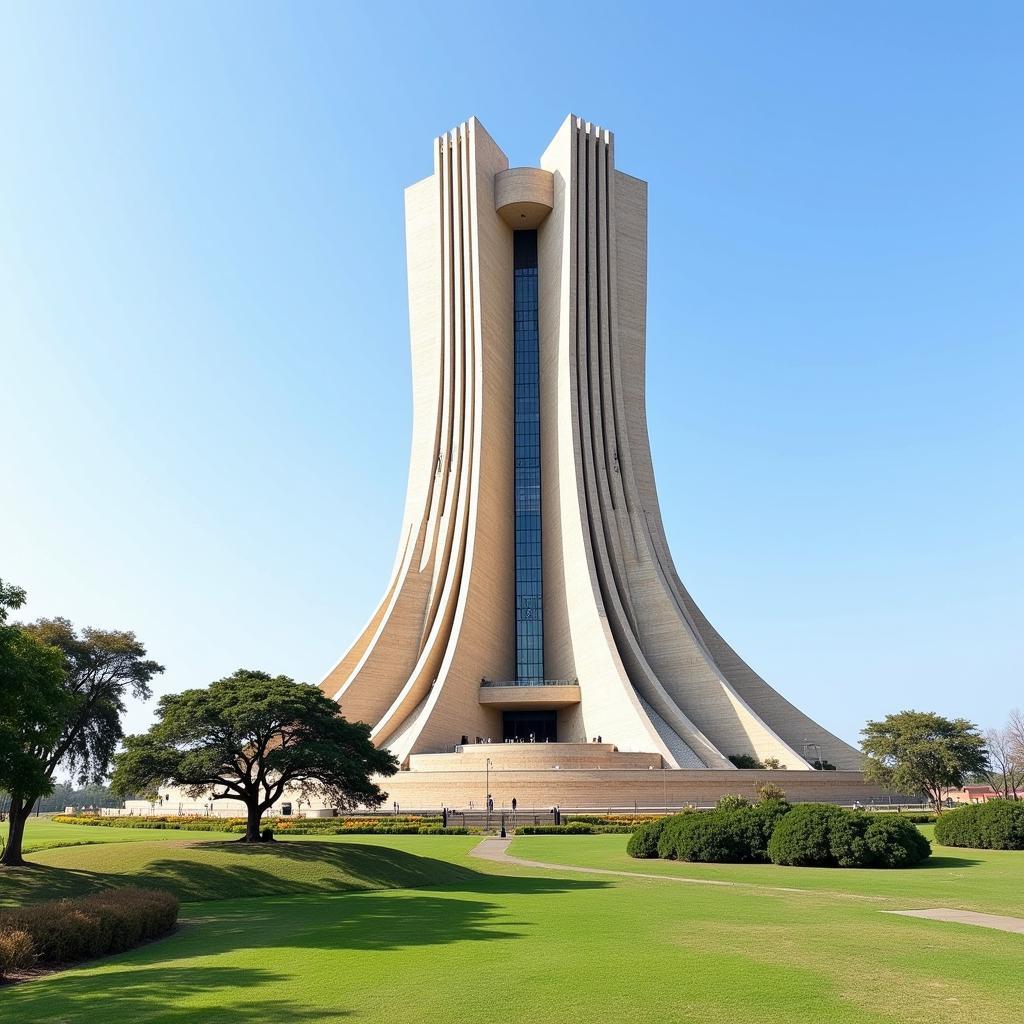Abdel Fattah El-Sisi Chair African Union: A New Era for the Continent?
Abdel Fattah El-Sisi assumed the chair of the African Union in 2019, marking a significant moment in the continental body’s history. His one-year term, occurring against a backdrop of complex geopolitical shifts and internal challenges, brought both opportunities and scrutiny. This article delves into El-Sisi’s tenure as African Union Chair, exploring his priorities, achievements, and the broader implications for Africa’s future.
El-Sisi’s Vision for the African Union
Upon assuming leadership, El-Sisi outlined a clear vision for his chairmanship, emphasizing themes of peace, security, and development. He championed the African Union’s “Silencing the Guns” initiative, aiming to end conflict and promote stability across the continent.
 El-Sisi Addressing African Union Summit
El-Sisi Addressing African Union Summit
Economic development and regional integration were also high on El-Sisi’s agenda. He advocated for increased intra-African trade and investment, viewing it as crucial to unlocking Africa’s vast economic potential. El-Sisi also stressed the importance of infrastructure development, particularly in the areas of transportation and energy, as a catalyst for growth and connectivity.
Key Achievements and Challenges
El-Sisi’s chairmanship saw progress on several fronts. He played a pivotal role in mediating regional conflicts, including the dispute between Ethiopia and Sudan. His administration also facilitated the signing of the African Continental Free Trade Area (AfCFTA) agreement, a landmark achievement aimed at creating a single market for goods and services across Africa.
 African Leaders Signing AfCFTA Agreement
African Leaders Signing AfCFTA Agreement
However, his tenure was not without its challenges. El-Sisi faced criticism from some quarters regarding his human rights record in Egypt and concerns about shrinking democratic space within the country. These concerns raised questions about the AU’s commitment to its own principles of good governance and respect for human rights.
Legacy and Long-Term Impact
El-Sisi’s time as African Union Chair left a mixed legacy. His commitment to peace and security, coupled with his efforts to advance economic integration, were undeniably positive steps. The successful launch of the AfCFTA holds significant promise for Africa’s economic future, and El-Sisi’s role in this achievement should not be underestimated.
 African Union Headquarters in Addis Ababa
African Union Headquarters in Addis Ababa
Yet, questions about his approach to governance and human rights continued to linger. As the African Union navigates a rapidly evolving global landscape, it will need to grapple with the balance between promoting stability and upholding its core values of democracy and human rights. El-Sisi’s chairmanship, while marked by both progress and controversy, served as a stark reminder of the complexities facing the African continent and the leadership required to address them.

